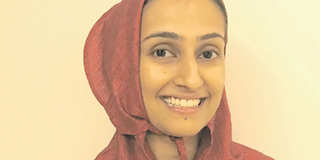Health conditions your teeth can reveal

You’ve probably heard or read time and again that you should visit your dentist at least once in every six months.
Now you may insist that you follow a meticulous oral hygiene regime, have never ever experienced a toothache, bleeding gums, sensitivity or any other sort of other dental issue that may warrant a visit to the dentist.
In spite of all that, do you ever wonder why we stress on the same so often?
Well, this may come as a bit of a surprise but in fact, your dentist may be the first person to notice non-dental medical issues in your mouth during an examination. Some of the most common diseases that manifest as oral conditions are:
Diabetes
Dry mouth, receding gums, bleeding gums and loose teeth are all warning signs that indicate a diagnosis of diabetes. Diabetic patients also experienced delayed healing in oral wounds and gum line infections due to poor immunity. However, these signs are not only limited to diabetes.
Stress
Stress not only takes a toll on your mental wellbeing, but may also manifest in the mouth. One of the most obvious manifestations of stress in the oral cavity is worn out occlusal surfaces of the teeth. This is due to a condition called bruxism, or in other words grinding of teeth.
You should also look for other ways to free your mind and body of stress, be it exercise, playing some sort of sports, yoga and meditation.
Oral Cancer
Oral cancer is one of the most aggressive types of cancer. Your dentist may perform an oral screening if he/she notices red or white lesions on the tongue, palate, floor of the mouth or insides of the cheeks. Major risk factors are alcohol consumption, smoking and tobacco chewing.
Infections
Severe pain, swelling, redness around the affected area, an area that feels hot to touch, fever and pus in or around the tooth are all signs of infection. If left untreated, infections may spread to other parts of the body. Therefore it is of utmost importance that an oral infection is treated in a timely manner.
HIV
White, red, purple or brown spots in the mouth and especially on the tongue are common signs manifested in adult patients with HIV. Some may also develop oral warts.
Children infected with HIV may have salivary gland swelling that results in a dry mouth and due to severe immunosuppression, they are more prone to viral infections like herpes and fungal infections like oral candidiasis.
Having the above symptoms do not necessarily mean that one has HIV but may raise a red flag and your dentist may advise you to get a blood work up done to rule it out.
Poor Nutrition
You may try to hide your eating disorder from everyone but your dentist will figure it out as soon as he/she sees your oral cavity. Cases of bulimia usually present with bleeding gums, dry mouth, and erosion on the insides of front teeth. Forced vomiting causes the gastric acid to wear off the enamel of teeth and also leads to sensitivity.
Osteoporosis
This is a condition in which the body loses bone or makes too little bone. Thus, leading to bone weakness. Although this can happen to pretty much anyone, it is more common in post menopausal women.
Mobile teeth and receding gum line are tell tale signs of an underlying bone disease as the teeth lose support from the jaw bone due to changes in density of the bone.
The dentist may refer you to a physician for bone density and other relevant tests.
So the next time when someone refers to a dentist as a doctor, don’t say ‘oh but they only deal with teeth’. There are ceratin health problems your dentist can catch at an early stage. Regular dental care may save you from developing life threatening conditions and give you a chance at a better prognosis.
The author is a dentist based at the Ebrahim Haji Charitable Health Centre.




